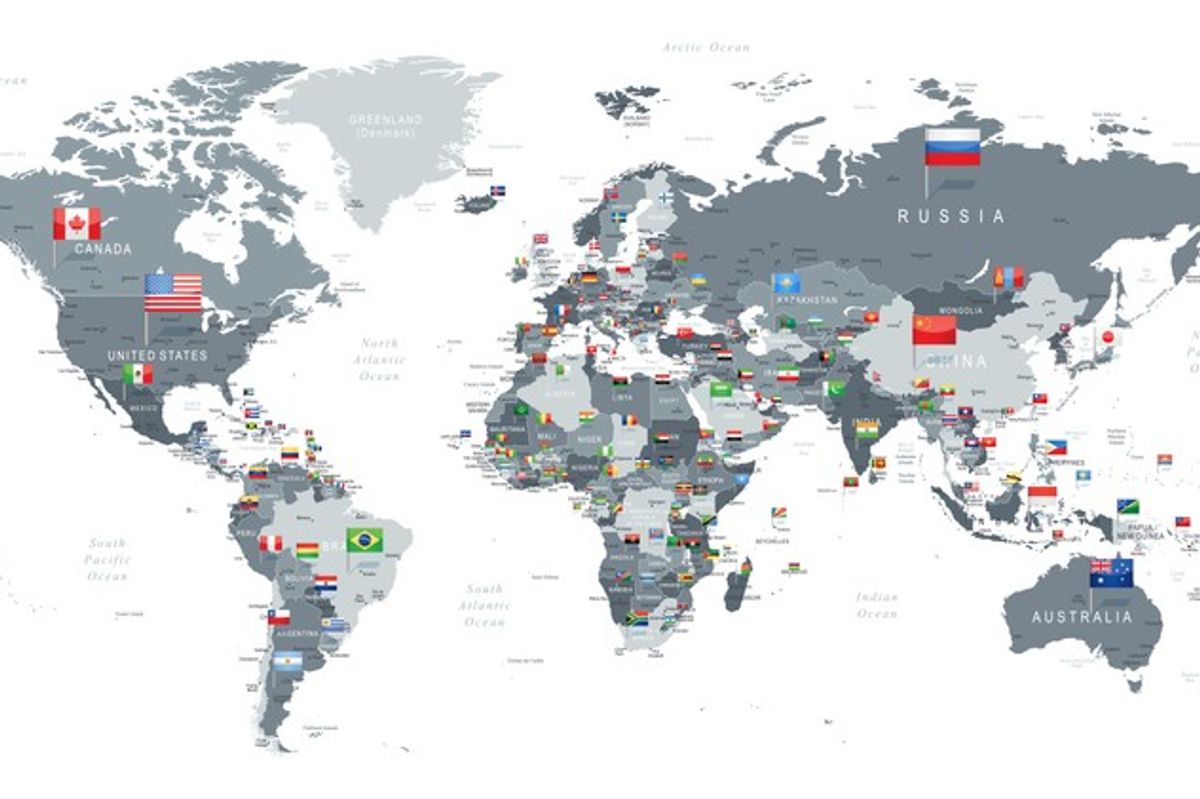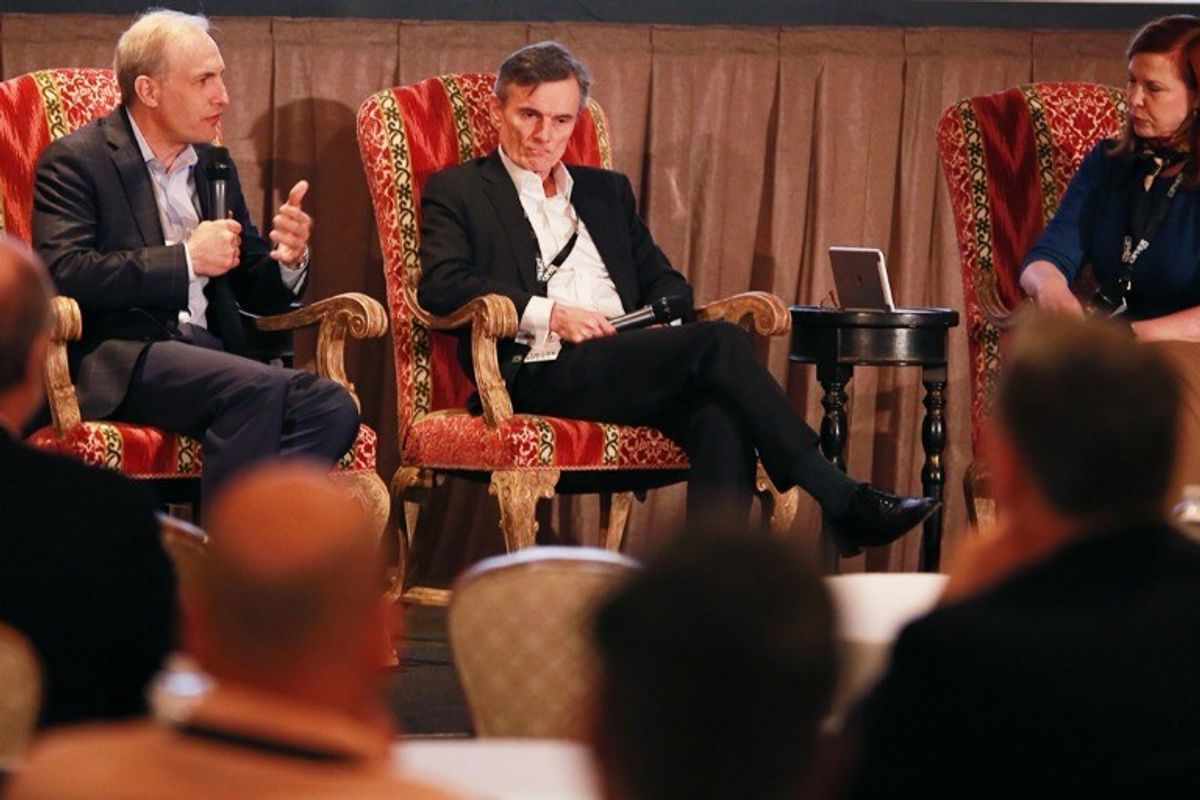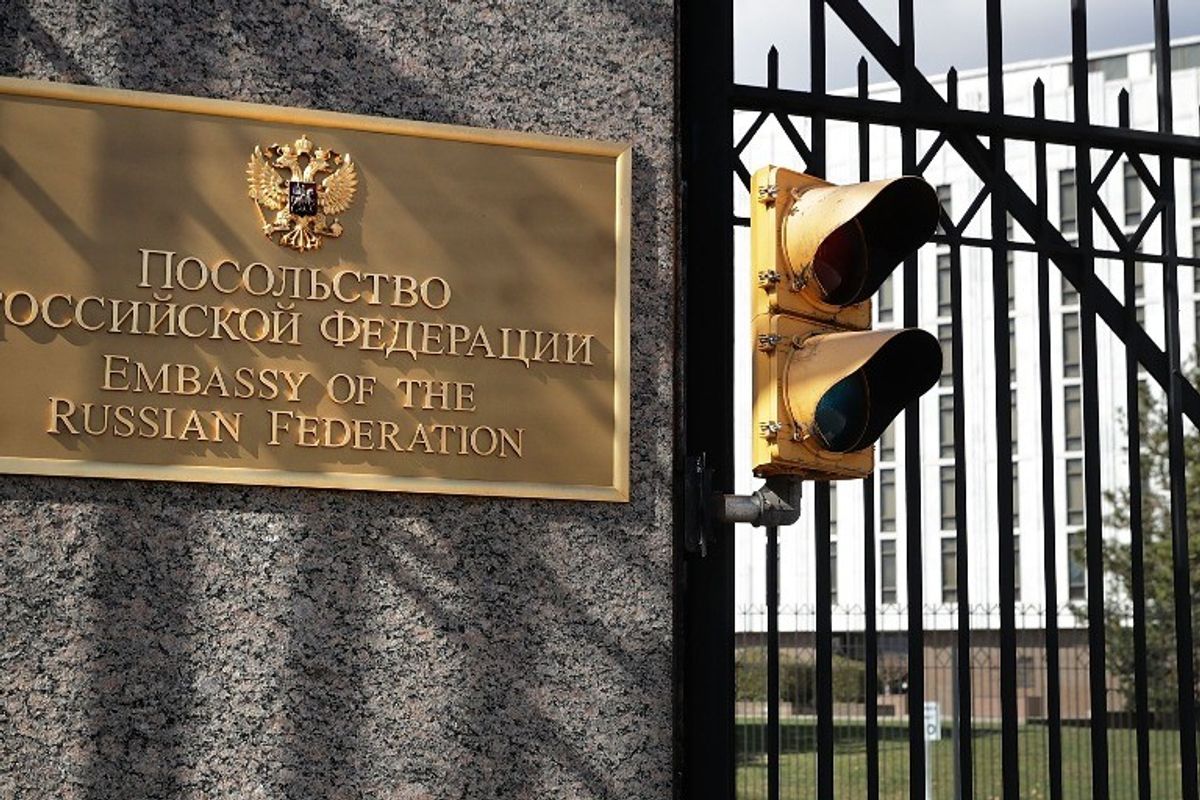After British snap elections last Thursday, attention has turned back to Brexit negotiations between the EU and the UK, which began this week. Headline issues include the so-called exit fee that London is being asked to pay Brussels, as well as immigration issues and the status of EU citizens already working in the UK. The Cipher Brief’s Fritz Lodge spoke with Tina Fordham, Managing Director and Chief Global Political Analyst at Citi Research, about where the UK goes from here in negotiating its divorce and subsequent trade deal with the European Union.
The Cipher Brief: Can you talk a bit about the results from Thursday’s election – where that leaves the May government, whether she will survive, and for how long, in your opinion?
Tina Fordham: Theresa May took a calculated risk, being in the strong position of having a 20-point polling lead, by calling snap elections that would have given her five years in office to negotiate Brexit. And it backfired. It was a stunning and sharp decline, but it turns out that the more the British public saw of Theresa May, the less they liked her. They also did not seem to care much for her party manifesto, which had some objectionable things in it, such as the so-called dementia tax. This was meant to be a way of providing social care for elderly people, but it was taken very badly by the public.
Conversely, the more the British public saw of Jeremy Corbyn, the more they liked him and, after years of austerity, it also turns out that people seem to like spending pledges, even though the Labour Party manifesto is wildly underfunded.
All this leaves Theresa May in a very weak – and in my view untenable – position. I believe she will face an internal leadership challenge within the Tory Party in the coming weeks. I think there is a strong likelihood of new elections within the next six to 12 months, and possibly even as early as the end of this year.
So we’re in for UK political disarray for an extended period.
TCB: How does this affect Brexit negotiations – currently scheduled to begin in earnest next week – what does this do to May’s negotiating position, and how will she approach this now?
Fordham: We’ve never known what Theresa May’s negotiating position was, even before the referendum when she took over as prime minister, it was never clear what her negotiating position was, other than “Brexit means Brexit” and an emphasis on immigration over economics and jobs.
Labour has also said that Brexit means Brexit. The shape of it and the path that it takes just isn’t clear. But between 13 and 15 bills have to be passed in the Parliament in order to make this happen – this so-called Great Repeal Act – and with not even a coalition agreement but a so-called confidence-and-supply agreement between the Conservatives and the Democratic Unionist Party of Northern Ireland, the practicalities, the implementation of Brexit start to look difficult.
And I think, for the first time, we can also imagine a scenario of either a second referendum on an eventual Brexit deal or a new election, in the next two to five years perhaps, that is run explicitly as overturning the Brexit result. So, there’s now more risk of a so-called “hard” Brexit, “crashing-out” Brexit, and of no Brexit, or kind of an indefinite delay, which is maybe the worst situation for investors and companies because it creates more uncertainty.
TCB: However, she is still planning to continue negotiations for the moment, correct?
Fordham: Yes, but the way that they want to structure them – which is to do a trade deal simultaneously with the so-called Brexit divorce bill – is a nonstarter according to the EU, and this is where having a weakened prime minister becomes problematic.
The European Union wants to negotiate the divorce bill first, and that could also be the catalyst to hastening new elections, or at least the next flash point in all this. With a price tag that could be as much as €100 billion, that could be a tough sell to a public that doesn’t understand why it would have to pay for something it’s no longer going to be a part of.
TCB: Do you see signs already that EU negotiators are raising their demands? Are they changing their position?
Fordham: No, we’re just talking about developments over the weekend. The way I would put it is that some in the European Union and the Commission now wonder if there isn’t a way to keep Britain inside. There’s no monolithic point of view of course. I don’t expect concessions to be offered anytime soon. In fact, that [President Emmanuel] Macron now enjoys a very robust majority in France, plus the expectation that [Angela] Merkel is reelected to a fourth term as Chancellor in Germany, means that the European Union may have its mojo back. The EU could let the UK twist in the wind for a while until it works out what it wants.
TCB: Can you talk a little bit about the process on the EU side for making this agreement and ratifying it through each member country? Does each member country essentially have a veto over any agreement that comes out of negotiations?
Fordham: It’s qualified majority voting, which means it doesn’t require unanimity. But something of this magnitude de facto means that if any member state has a major objection it could run things into the ground. So there’s a technical answer and there’s a political answer, which is why I’ve talked partly in jest about things like the future of the Elgin Marbles – those being the Greek statues in the British museum that the Greeks would like back. These could be sticking points because if you want to get something out of the UK, now is time.
TCB: These bilateral disputes between the UK and all these member states – do you see this ballooning over the next couple of years as every member state piles on with its different demands of the UK?
Fordham: No, I really don’t. The EU is starting to grow again, whereas the UK has been the worst-performing country in the EU. Again, with strong election results in France and Germany, the bigger risk for the UK is that Europe moves on without it and doesn’t devote a lot of time or political energy to these negotiations.
TCB: Very hard to tell now – but realistically what kind of a deal can the UK expect to make at the moment? What would be the best-case scenario?
Fordham: Well the UK has to decide a, what it wants, and b, what’s politically possible – because politics is the art of the possible. A Norway-type agreement, remaining part of the European economic area, was vetoed by the Brexiteers. But they just had their mandate for hard Brexit focusing on immigration taken away from them. So it’s going to take some time to discern what type of Brexit they want. There’s “soft” Brexit, “hard” Brexit, “open” Brexit, which focuses on jobs and the economy and is staying in the single market, versus the Brexiteer focus on immigration and control of borders and bringing back sovereignty.
So this is an open question and because of that delay in agreeing what the strategy is, the potential for no Brexit, a Brexit delay, or a hard crashing-out Brexit has gone up.
TCB: Any final thoughts?
Fordham: As someone who’s written extensively about populism and what I call vox populi risks, a lot of observers and investors started this year saying Brexit happened, Trump happened, we’re sure the National Front is going to win in France, and that’ll be the end of the euro. That fundamentally hasn’t happened. So there is a strong appetite for political alternatives, but not necessarily strictly for right-wing populist alternatives. And the cosmopolitan university-educated liberal elites aren’t quite over yet. Globalization isn’t quite dead either.












